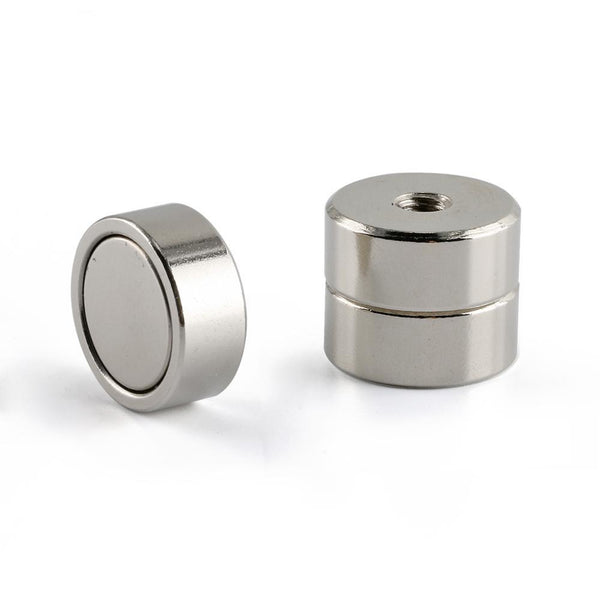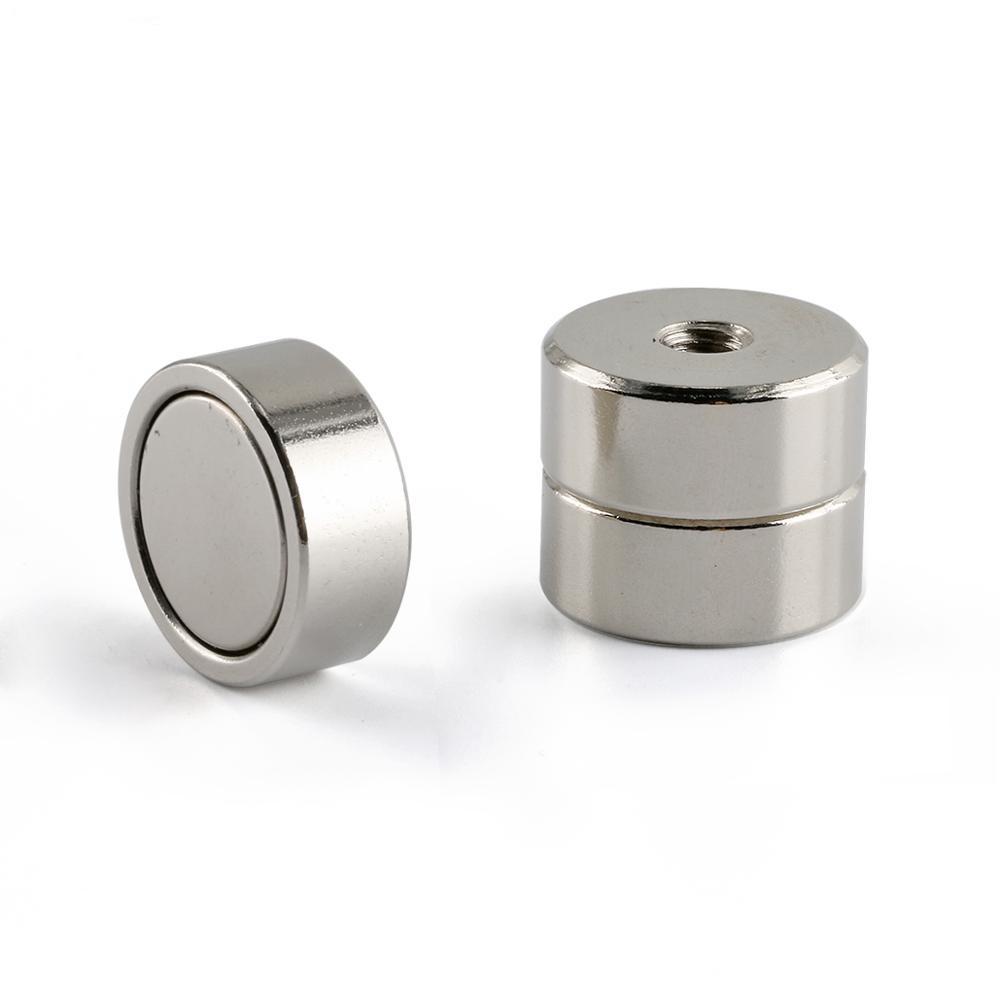Neodymium Pot Magnet - Diameter 20mm x 11mm | M6 Internal Thread
Product code: AMFYPH20


Prices are GST Incl.
Volume pricing available on requestAustralia's Leading Supplier
Shipping Worldwide*
30 Day Returns
Same Day Dispatch*
Magnetic Product Description:
This Neodymium Pot Magnet has a diameter of 20mm and a height of 11mm. It has an internal M6 thread, and a pull force of 4 kilograms. This product is identified by AMF Magnetics Product Code AMFYPH20 and is sold per magnet.
No FAQ available

NB: Ranges are indicative for product category, please check individual products for specic values within that range.



The most common coating for Neodymium magnets is Nickel + Copper + Nickel (Ni + Cu + Ni). This coating offers the magnet relatively good protection from corrosion and passive applications. If the magnet will be exposed to moisture or liquid then consider the use of an organic coating such as Epoxy. A hard wearing coating, Epoxy is suited to applications where the magnet will come under some friction or knocking.

Magnets are readily available in Blocks, Discs, Cylinders & Rings. AMF Magnetics specializes in the supply of short-run prototype magnets including Arc Segments, various magnetic orientations etc. If you need a magnet size that we don't carry in stock, submit a Design-a-Magnet enquiry for a quote on your custom magnet design.

Neodymium magnets are offered in several different grades. The first section N30-54 has an operating temperature of up to 80 degrees. Most of our stock only goes up to N38. The second section, denoted with the "M" prefix after the grade has an operating temperature 100 degrees. After this the grades are "H", "SH", "UH" & "EH". In order for the magnet to withstand a higher operating temperature, during production more of the raw material PrNd is incorporated as these elements have a naturally occurring resistance to high temperatures.
Magnetic Product Description:
This Neodymium Pot Magnet has a diameter of 20mm and a height of 11mm. It has an internal M6 thread, and a pull force of 4 kilograms. This product is identified by AMF Magnetics Product Code AMFYPH20 and is sold per magnet.
No FAQ available

NB: Ranges are indicative for product category, please check individual products for specic values within that range.



The most common coating for Neodymium magnets is Nickel + Copper + Nickel (Ni + Cu + Ni). This coating offers the magnet relatively good protection from corrosion and passive applications. If the magnet will be exposed to moisture or liquid then consider the use of an organic coating such as Epoxy. A hard wearing coating, Epoxy is suited to applications where the magnet will come under some friction or knocking.

Magnets are readily available in Blocks, Discs, Cylinders & Rings. AMF Magnetics specializes in the supply of short-run prototype magnets including Arc Segments, various magnetic orientations etc. If you need a magnet size that we don't carry in stock, submit a Design-a-Magnet enquiry for a quote on your custom magnet design.

Neodymium magnets are offered in several different grades. The first section N30-54 has an operating temperature of up to 80 degrees. Most of our stock only goes up to N38. The second section, denoted with the "M" prefix after the grade has an operating temperature 100 degrees. After this the grades are "H", "SH", "UH" & "EH". In order for the magnet to withstand a higher operating temperature, during production more of the raw material PrNd is incorporated as these elements have a naturally occurring resistance to high temperatures.




